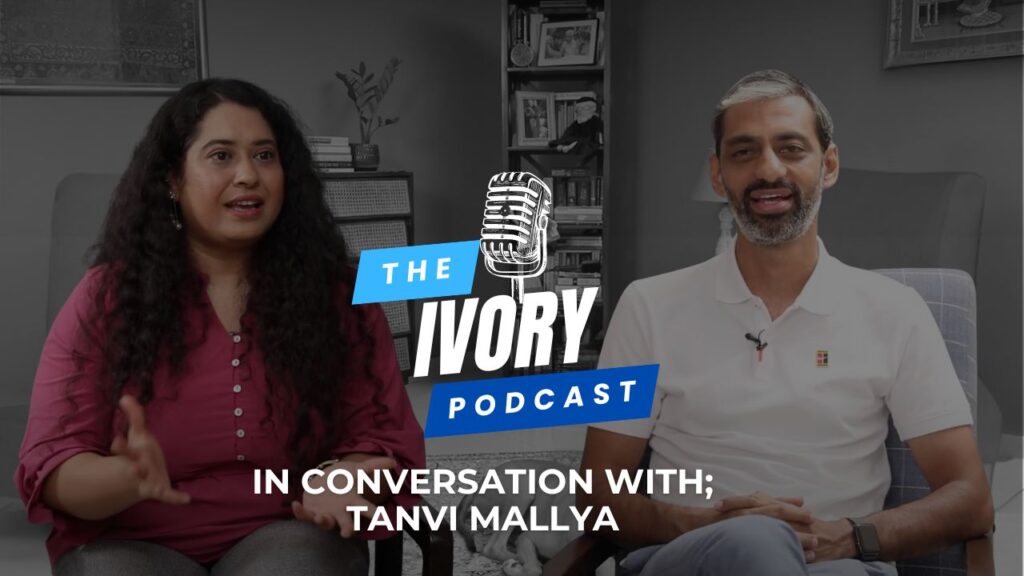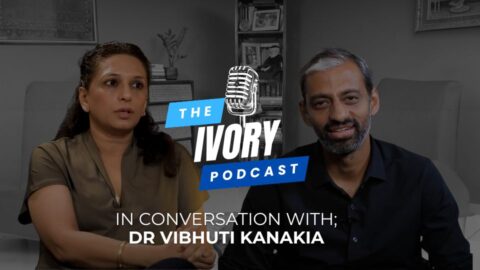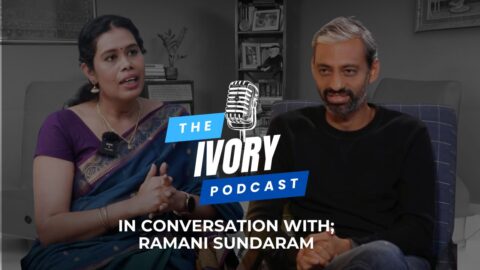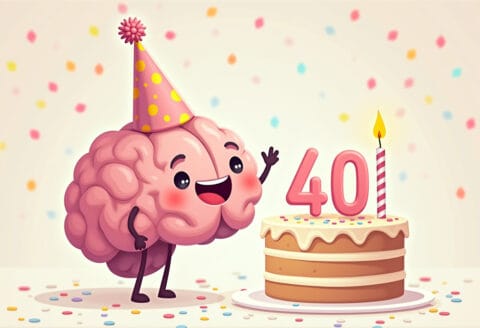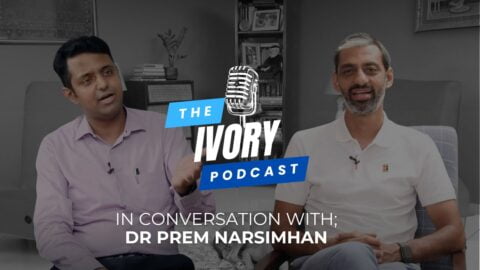First things first, what is the The Ivory Podcast?
“Is ageing gracefully really within our control?”
That’s the question at the heart of The Ivory Podcast. Most health podcasts in India seem to skip over a pretty important group. Yep, we’re talking about the young-at-heart crowd – the ones who’ve celebrated more birthdays than the rest of us.
We bring together a diverse mix of guests, including health coaches, nutritionists, psychologists, doctors, and business professionals. They share insights and truths about the ageing process. It’s not just talk; it’s about understanding what really happens as we grow older. So, join us on the Ivory Podcast. It’s like sitting down for a cup of tea with friends who know a thing or two about growing older gracefully and taking care of our brain health. Considering this, we chatted with professional and personal caregiver Tanvi Mallya, a Neuropsychologist who specializes in home-based elder care for neurodegenerative disorders.
Tanvi Mallya: Pioneering Personalized Neurocare with Compassion
Here is a little bit of what the Ivory team thinks about her:
Tanvi Mallya brings a unique blend of expertise and compassion to elder care, combining her knowledge as a neuropsychologist with a deeply personal understanding of caregiving. When she spoke with us, she touched our hearts with her practical yet empathetic approach to dementia and neurodegenerative disorders. What sets her apart is how she champions the idea of creating a personalised care plan at home, helping families provide the best care without uprooting their loved ones. Her passion for maintaining dignity and quality of life for the elderly shines through in every word.
Tanvi, your dedication and compassion have deeply touched us. Thank you for sharing not only your expertise but also your heartfelt commitment to improving the lives of those affected by neurodegenerative disorders. We left the conversation inspired and moved by your unwavering mission to provide dignified, personalized care for the elderly.
With Gratitude,
Team Ivory
Now here is a little bit of what you should know about her work:
Tanvi Mallya is the founder of Tanvi Mallya’s Elder Care Services (TMECS), a Mumbai-based organisation that provides personalised, home-based care for elderly individuals with neurodegenerative disorders. A neuropsychologist by training, Tanvi focuses on keeping patients in familiar surroundings, offering services like cognitive stimulation therapy, family counselling, and staff training. She has been working in the elderly mental health space since 2014 and has conducted research on early-onset Alzheimer’s Disease. Her tailored, compassionate approach has earned her multiple awards, including the Mayor of Mumbai Award, for her dedication to preserving patients’ dignity and quality of life.
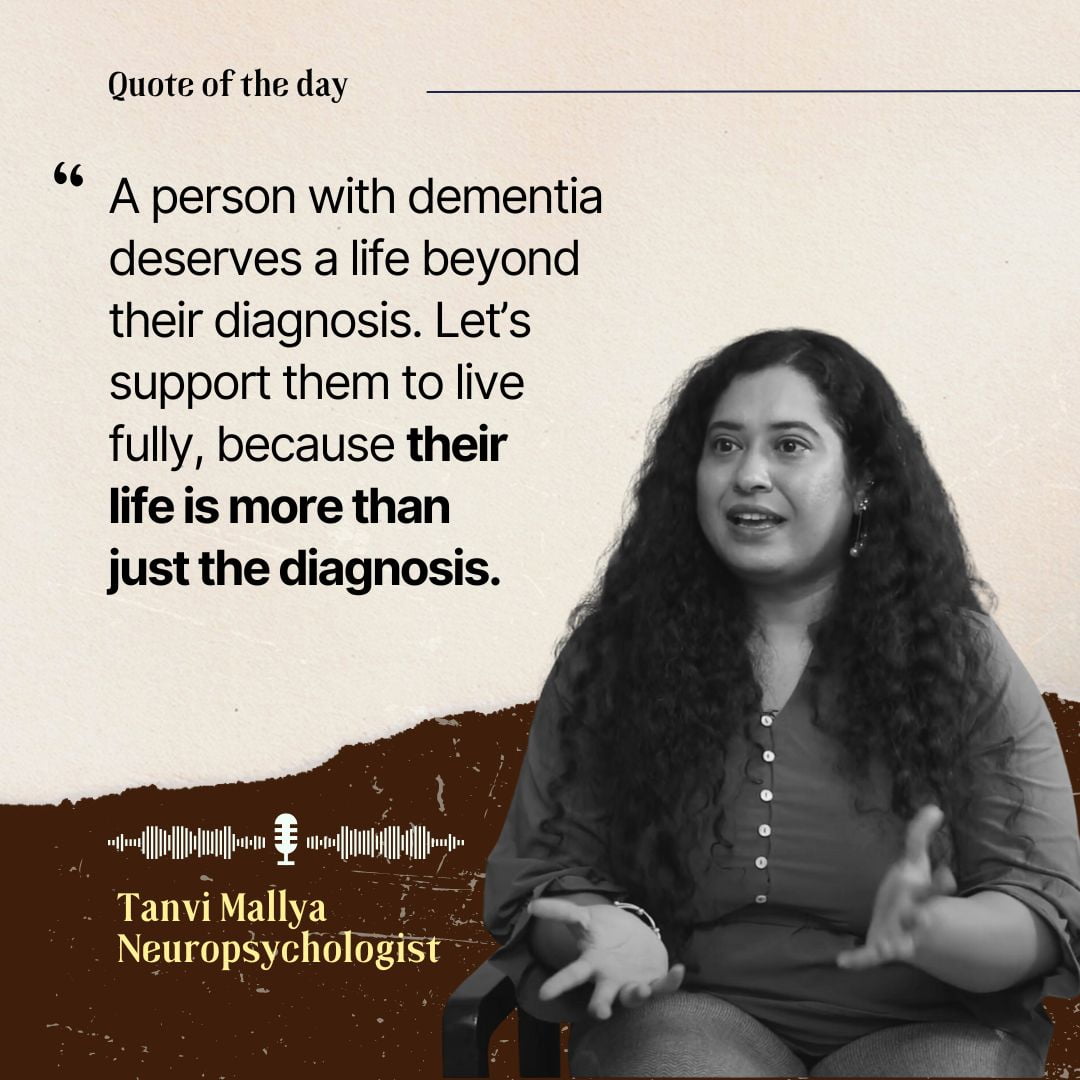
Let’s start 11 questions with Tanvi:
1. What was the level of awareness about Alzheimer’s when your grandfather was diagnosed?
There was very little awareness about Alzheimer’s back then, both in terms of what it is and the kind of care required. Families didn’t have easy access to information, making it hard to know how best to support their loved ones. It was a time when mental health issues were often misunderstood or dismissed, especially when it came to elder care. We didn’t have the kind of support networks or information sharing that exists now, so a lot of families were just navigating this on their own.
2. How did you become interested in neuropsychology?
I first became interested during an undergrad seminar at St. Xavier’s College, but my path was solidified when my grandfather was diagnosed with Alzheimer’s. His quick decline over two years really pushed me into this field. It was a personal journey that opened my eyes to how the brain works and how cognitive decline affects not just the individual but the entire family. Seeing how little we understood at the time about brain health made me want to dive deeper into neuropsychology to find ways to better support families and individuals going through similar experiences.
3. What positive changes have you seen in attitudes toward dementia and cognitive health over the years?
There has been a positive shift, especially in urban areas. More elderly people are now coming forward themselves, seeking help early, unlike in the past when families would only seek help during the later stages. People are talking about cognitive health more openly, which is a big change. Previously, there was a lot of shame or embarrassment associated with memory loss or cognitive decline, but now, people are more aware that it’s a health issue that needs attention. Awareness campaigns, better diagnostic tools, and a focus on preventive care have made a huge difference.
4. How does the pandemic play a role in mental health awareness?
The pandemic made conversations about mental health more normalized, which has helped reduce the stigma around seeking support for conditions like dementia. People became more comfortable discussing mental health challenges openly, and that has trickled down to how we approach elder care as well. The isolation many seniors faced during the pandemic also brought attention to the importance of cognitive stimulation and social interaction for mental health. There’s now a greater understanding that mental and cognitive health are interconnected and that we need to address both to support aging populations.
5. What is the most important thing for families to know after an Alzheimer’s diagnosis?
It’s not just about what not to do; families need guidance on how to positively support their loved one’s quality of life, helping them live fully despite the diagnosis. Alzheimer’s doesn’t mean that life is over, even though it’s a tough diagnosis. Families should focus on creating a supportive and enriching environment. There are ways to engage the person’s cognitive abilities through activities, music, and even just conversation. Care isn’t just about preventing deterioration; it’s about helping them thrive in the time they have.
6. What are some key services that eldercare provides, and how do they benefit patients?
Services like cognitive stimulation therapy and family counseling help both the patient and caregivers. It’s about taking a holistic approach to manage both emotional and cognitive well-being. Cognitive stimulation therapy helps keep the brain engaged, and it’s been shown to slow cognitive decline in some cases. Family counseling is crucial because caring for someone with dementia or Alzheimer’s can be incredibly stressful. It’s important to support the caregiver’s mental health as well, as their well-being directly affects the care they provide.
7. Is it possible to detect Alzheimer’s early, and what should people do if they’re concerned?
While early detection is tricky because current tests aren’t sensitive enough, brain scans can provide the most robust information. If there are concerns, it’s worth getting screened, especially as you age. The earlier we can identify cognitive decline, the more time we have to intervene with lifestyle changes, therapies, or medications that can slow the progression. People need to be aware of the warning signs—things like difficulty with problem-solving, language, or completing familiar tasks—and not dismiss them as just part of getting older.
8. What lifestyle changes can help reduce the risk of dementia, even with a genetic predisposition?
While genes may increase risk, lifestyle factors such as diet, sleep, mental health care, and regular check-ups can significantly reduce the chances of developing dementia. A healthy diet rich in vegetables, whole grains, and healthy fats has been linked to better brain health. Exercise is also critical, as it increases blood flow to the brain. Managing stress and ensuring good sleep hygiene are other important factors. Even if you have a family history of dementia, it doesn’t mean you’re destined to develop it. By taking proactive steps, you can greatly reduce your risk.
9. What is brain fog, and is it something to be concerned about?
Brain fog typically refers to confusion or difficulty accessing memory. It’s become more common, especially after COVID-19, but it can happen due to various physical or mental health conditions. It’s something to take seriously if it persists, as it could be a sign of an underlying condition. Often, brain fog is caused by stress, lack of sleep, or even dehydration, but if it’s ongoing, it’s worth speaking to a healthcare professional to rule out more serious cognitive issues.
10. What role do puzzles and games play in dementia care?
While puzzles like crosswords or Sudoku are often recommended, they can feel limiting. It’s important to find engaging activities that resonate personally with the individual, rather than reducing their entire life experience to a few games. Games that are more tailored to the person’s interests and abilities can be far more effective. For some, it might be creative activities like painting, while for others, it might be memory-based games. The goal is to keep the mind active, but it’s essential that these activities are meaningful and enjoyable for the person participating.
11. What is one message of hope you would share with families dealing with Alzheimer’s or dementia?
There is always hope. Though the journey is challenging, people with dementia or Alzheimer’s can still have meaningful, enriching experiences. Families need to remember that their loved ones are still there—maybe not in the way they once were, but they are still capable of connection, joy, and love. Focus on what’s possible, rather than what’s been lost. With the right support, both patients and caregivers can find a way to navigate this path together, and there is beauty in that.
We’ve summarised this engaging podcast into a Q&A format to highlight the key insights for you. But if you’d like to experience the full conversation, you can listen to the entire episode here.
The Takeaway
In our insightful conversation with Tanvi Mallya, we delved into the complexities and rewards of caregiving for those with neurodegenerative disorders. Tanvi’s unique perspective, both as a neuropsychologist and a personal caregiver, offers families essential guidance on navigating this challenging journey. She highlighted the importance of early intervention, the value of keeping loved ones in familiar environments, and the need for self-care among caregivers.
Tanvi’s compassionate approach reassures us that, even in the face of cognitive decline, there is hope. Her insights inspire us to enhance the quality of life for both patients and their families. You will also like this post 11 best foods to boost your brain and memory.
